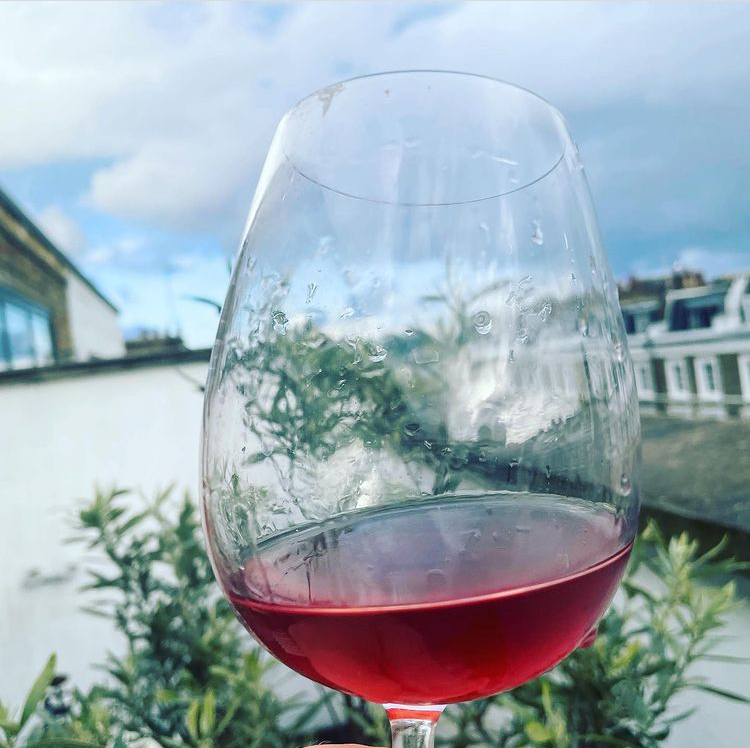The beautiful contractions of inconsistency

One of my memories of 2020 is how many good wines I drank over the twelvemonth. I would classify all of those as naturally-made, notwithstanding the full spectrum of styles within that category ranging from serious amber wines to glouglou reds. My abiding impression was of wine after wine that embodied brightness and energy, that was nourishing and spirit-lifting.
Was my unchallenging response predicated on the fact that I knew these wines were natural and consequently was ready to be seduced? Was it indeed a direct result of my palate being coarsened by years of abusive exposure to wines from Emmanuel Houillon, Yvon Metras and Claude Courtois? Was it that I am incapable of recognising faults when they are staring me in the face and that I cannot even distinguish my vin from my vinegar? Or, more likely, is it that I am fortunate enough to be able to drink the wines I know I am going to like and I base all my reasoned consumption on the dictum that “life is too short to drink bad wine.”
Perhaps the high success hit rate is also probably because I haven’t had to taste wines purely in the interest of research. Because of lockdown I haven’t invited samples nor had to taste unsolicited ones. In one sense, I have cocooned myself against disappointment. In another, I am behaving like a typical consumer and drinking what I want.
For me, drinking wine is a one bottle date with destiny. If the wine shines then it is a short date.
So, why this statement of the bleedin’ obvious? Am I trying to prove that natural wines are more consistent than their critics would have us believe? Yes and no. No, because that depends on the wines and the producers themselves, and it would be pointless to generalise on the basis of my 350-bottle-a-year experience. On the other hand, if your strike rate is consistently above 95% year after year – and the majority of those absolute corkers – then it seems safe to asseverate that assaying natural wines is not akin to playing the faults lottery.
Wine appreciation starts with the preconceptions of the individual. Without the taster, there would be no taste, or, more accurately no perception of taste. I like to think I am neither entrenched in prejudice, overly reactive or hypercritical. I am surprised, for example, that certain natural wine aficionados will smell and taste no-evil in wines from a grower that they adore, that they cleave to the idea of the wine and the sanctity of the label regardless of the actualité. I am equally surprised that others (both in the natural and conventional camps) will assess wines purely in terms of their perceived faults. The obsession with clinical correctness or accuracy is what I call taste-determinism, a kind of endlessly reductive assessment. Ultimately, the determination is a binary one: the wine is good or bad, correct or faulty.
When I smell or taste, I am primarily checking out the drinkability and pleasure quotient of a wine. I will register obvious faults: cork taint; oxidisation and mouse and know that they are not conducive to enjoyment. Other flaws/faults can be relative or inhabit a murky area; sometimes they are present in the wine and not significant enough to worry me; sometimes, they actually enhance my pleasure of the wine in question, and sometimes they detract from it. That is why it is better to look at wine on a case-by-case basis and place oneself (or rather one’s sense of taste) into the equation. It seems obvious to state this – but necessary to reinforce this truism – that every individual’s taste threshold is different. If you like, our palates may be similarly configured, but our brains are very differently wired.

Besides, inconsistency is an integral part of tasting. Not only the wine’s natural mutability, but also our own. This blog has been prompted by reading sweeping statements about levels of VA in this wine, mousiness in that, and so forth on social forums, and the generalising comments that ensue. It does not follow, for example, that if one wine from a producer exhibits x faulty characteristic, then all his/her other wines will be similarly afflicted. Nor does it even follow that all the same wine from the same producer will always be affected thus. It is convenient to generalise and put growers and wines into boxes, but it is more honest to be open-minded, return to a wine and try it again. There is such a rush to get a wine onto Instagram or the page of a natural wine forum, that the whole process of assessment and evaluation is rushed in favour of the gratification of sharing an opinion.
Coming back to my 2020 foresight. I always let my mood (and the food) dictate my wine choice. For me, drinking wine is a one bottle date with destiny. If the wine shines then it is a short date as I drink for thirst, a below-the-neck experience. The beauty of not analysing or over-intellectualising is that you tend to respond more intuitively. If the wine slakes your thirsty needs, then great. If it makes you sit up and go “wow”, then even better. Really good natural wines (and there are a lot of them) give me all kinds of pleasure, from the visceral to the aesthetic.
And all things counter, original, spare, strange;
Whatever is fickle, freckled (who knows how?)
With swift, slow; sweet, sour; adazzle, dim…
Inconsistency can be a beautiful attribute.

